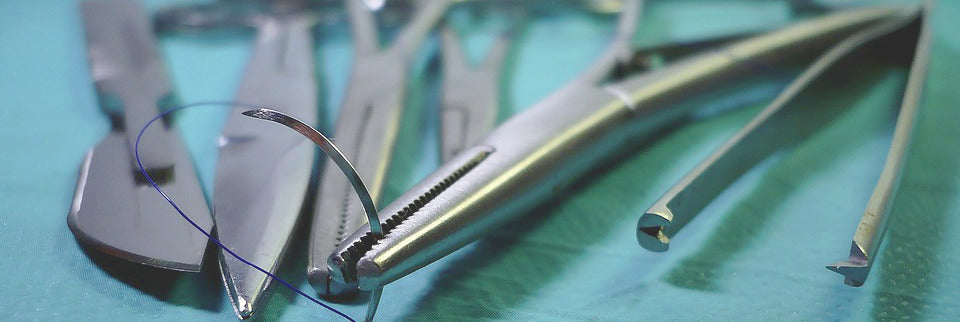- Choosing a selection results in a full page refresh.
Is stainless steel hypoallergenic?
There are over 150 grades of stainless steel. Its strong, doesn't tarnish, can be polished easily and is great value. Jewellery in stainless steel is commonly made from 316l or 316lvm and is often called medical or surgical stainless steel as it doesn't react to the skin….well, for most people.
So what is "surgical" stainless steel?
There is no formal definition of "surgical" stainless steel, its a common term used when describing the types of stainless steel (mostly 316) used in medical applications.

When a piece of jewellery states its made from "Surgical stainless steel" its normally trying to reassure you of its safe properties.
There are many grades but the most common is probably 316L and its a great choice for jewellery, piercings, and body jewellery due to being very durable, corrosion resistant and it can be easily polished.
The down side is stainless steel 316 contains 10%-13% nickel, and some people can have a reaction to it, especially when going through the skin.
All piercings made from 316L pass EU directives on Nickel ion migration, which states the material has to leach less than 0.2 µg/cm2/week for post assemblies. This could still be too much for people with nickel allergies or who are hypersensitive.
If you have had an allergic reaction to surgical stainless steel, its most likely a reaction to the nickel. There are other options. I’d always recommend niobium or titanium which are slightly more expensive but are inert metals and non reactive. But I am bias towards these inert metals :)
Other metals that don’t contain nickel can be sterling silver or most platinum pieces, but check with the jeweler on each platinum piece. As a rule its best to avoid white gold completely, and if you do want to try gold, go for high karat grade.
For more information on jewellery metals and what they may contain. Click our, What metals are hypoallergenic? article.
Other grades classed as "surgical stainless"?
I’ve also seen stainless steel 420 and 440 described as surgical, due to them being used to make surgical tools but its a lot less common. 420 is used traditionally to make carving knives (as its harder than 316) giving it the common term "cutlery" grade.
To tell the difference quickly, austenitic grade stainless like 316 isn’t magnetic but martensitic grades 420 and 440 are.
Stainless 420 has an advantage as it doesn’t contain nickel but is much less common in jewellery. Its growing, and you may see it being utilized in some 3d printed jewellery.
So... is stainless steel hypoallergenic!!?
Some people will say yes, as most people will not have a reaction to it.
I always say no. Alot of people I've met have had itchy ears or a reaction when wearing some stainless piercings and to me, its how much confidence you have to say it wont cause a reaction. I couldn’t call stainless steel hypoallergenic. Our Jewellery uses Titanium click to see more.
Thanks for subscribing!
This email has been registered!